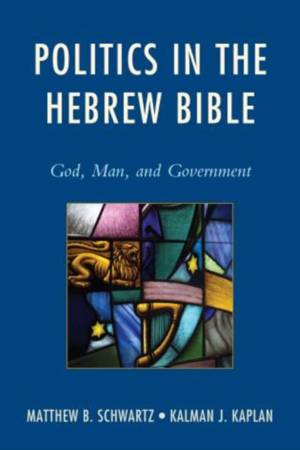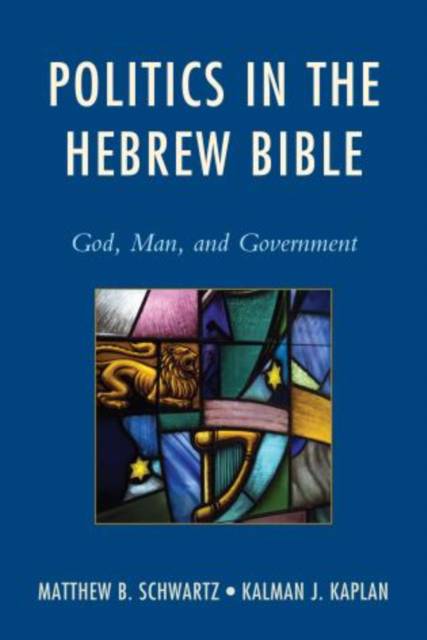
- Afhalen na 1 uur in een winkel met voorraad
- Gratis thuislevering in België vanaf € 30
- Ruim aanbod met 7 miljoen producten
- Afhalen na 1 uur in een winkel met voorraad
- Gratis thuislevering in België vanaf € 30
- Ruim aanbod met 7 miljoen producten
Zoeken
Politics in the Hebrew Bible
God, Man, and Government
Matthew B Schwartz, Kalman J Kaplan
Hardcover | Engels
€ 93,45
+ 186 punten
Omschrijving
In Politics in the Hebrew Bible: God, Man, and Government, Kalman J. Kaplan and Matthew B. Schwartz offer a genre-straddling examination of the political themes in the Jewish Bible. By studying the political implications of 42 biblical stories (organized into the categories Social Order, Government and Leadership, Domestic Relations, Societal Relations, Morale and Mission, and Foreign Policy), the authors seek to discern a cohesive political viewpoint embodied by the Jewish Bible.
Specificaties
Betrokkenen
- Auteur(s):
- Uitgeverij:
Inhoud
- Aantal bladzijden:
- 218
- Taal:
- Engels
Eigenschappen
- Productcode (EAN):
- 9780765709851
- Verschijningsdatum:
- 5/09/2013
- Uitvoering:
- Hardcover
- Formaat:
- Genaaid
- Afmetingen:
- 157 mm x 229 mm
- Gewicht:
- 453 g

Alleen bij Standaard Boekhandel
+ 186 punten op je klantenkaart van Standaard Boekhandel
Beoordelingen
We publiceren alleen reviews die voldoen aan de voorwaarden voor reviews. Bekijk onze voorwaarden voor reviews.











